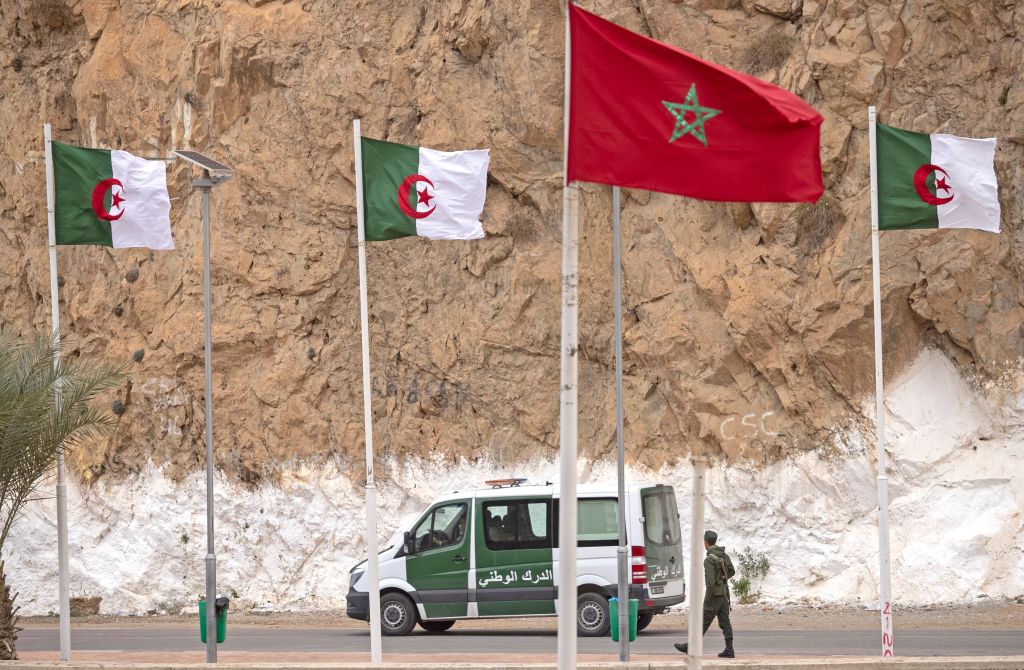ADF STAFF
The earthquake that struck Morocco this month created an opportunity to ease tensions between the kingdom and its neighbor, Algiers, which broke off diplomatic ties in 2021.
The magnitude 6.8 quake killed more than 2,000 people and left thousands more homeless in the community of Amizmiz.
As relief efforts began, Algerian authorities opened their airspace to planes headed to Morocco and offered to send three military aircraft loaded with humanitarian aid and support personnel to help Moroccans recover. The Moroccan government turned down the aid, however, saying it wasn’t needed.
The moment represented a fleeting improvement in relations between Algeria and Morocco, which have had a closed border since 1994.
The two neighbors have had a tense relationship for decades fueled partly by the status of Western Sahara. Morocco claims the territory and Algeria supports its independence.
Diplomatically, Morocco has built ties with Western countries and supports Ukraine while Algeria has cultivated connections with Russia and China.
“The diplomatic strain between Algiers and Rabat has been publicly prominent, with officials in both countries using hostile and forceful rhetoric to condemn each other in the media,” analyst Zine Labidine Ghebouli wrote recently in World Politics Review.
Already heavily armed, both countries recently have increased their military budgets and added new weapons to their arsenals. The escalation has diverted money from economic development and social programs and at the same time increased the risk of an armed conflict that could destabilize the region, Ghebouli wrote.
Higher military spending has paralleled declines in diplomacy.
In 2020, Algeria expelled the Moroccan consul in Oran, whom it accused of spying. In 2021, Algeria broke off diplomatic ties after what it called a series of “hostile actions” by Morocco. Among other things, Algeria claims Morocco supports Berber separatists in Algeria’s northern Kabylia region.
This year, Algeria’s coast guard shot and killed two tourists who strayed into Algerian waters from Morocco. Security forces arrested a third tourist who swam ashore after the incident.
In March, Algerian President Abdelmadjid Tebboune described the relationship as nearing a “point of no return.” In June, Algeria announced a new foreign minister to replace Ramtane Lamamra, who oversaw the 2021 diplomatic break, Algeria’s second with Morocco since 1976.
Foreign Minister Ahmed Attaf suggested that changes might be ahead for Algeria’s foreign policy. “We are undergoing major transformations that are forcing us to adapt,” he said in a statement.
In July, Moroccan King Mohammed VI expressed hope for improved relations with Algeria.
Other observers hold out hope that the two countries can find a way to rebuild their relationship.
“With their differing historical trajectories and political systems, bringing these two rivals to terms will be difficult, but not impossible,” Mohammed Ahmed Gain, president of the African Institute for Peacebuilding and Conflict Transformation (AIPECT), wrote for the Middle East Institute.
A cooperative relationship between Algeria and Morocco could be the key to tapping the unrealized economic potential of the Maghreb, which also includes Libya, Mauritania and Tunisia.
But first, Algeria and Morocco need to tone down their rhetoric, according to Gain.
“Pragmatism is key to tamping down tensions,” Gain wrote. “This means compromise and cooperation in place of foreign policy doctrines that breed division.”

